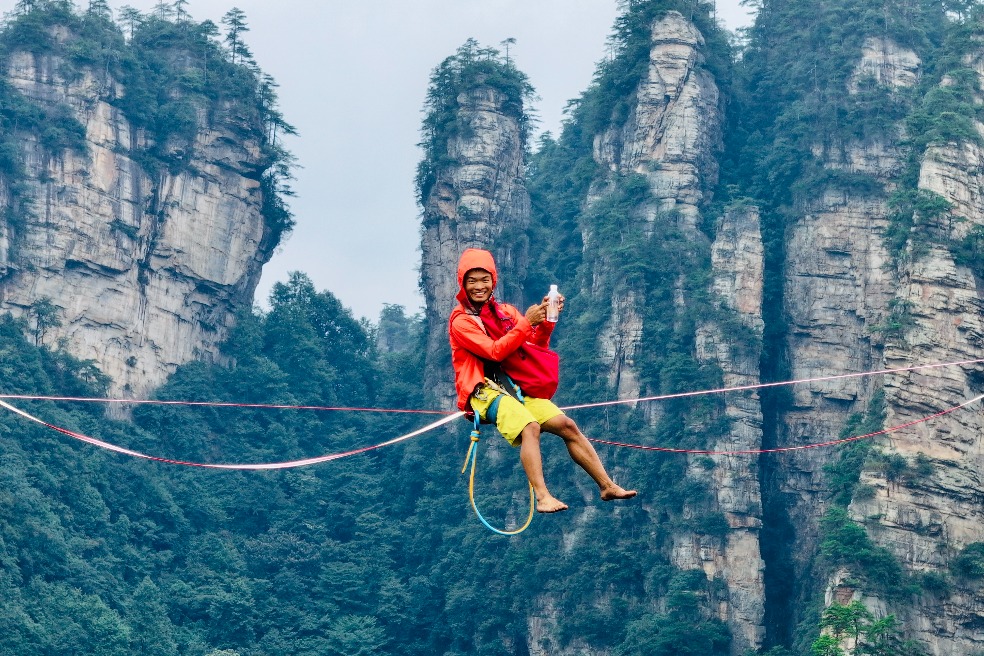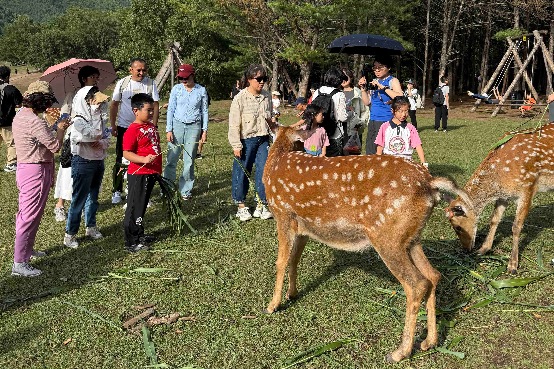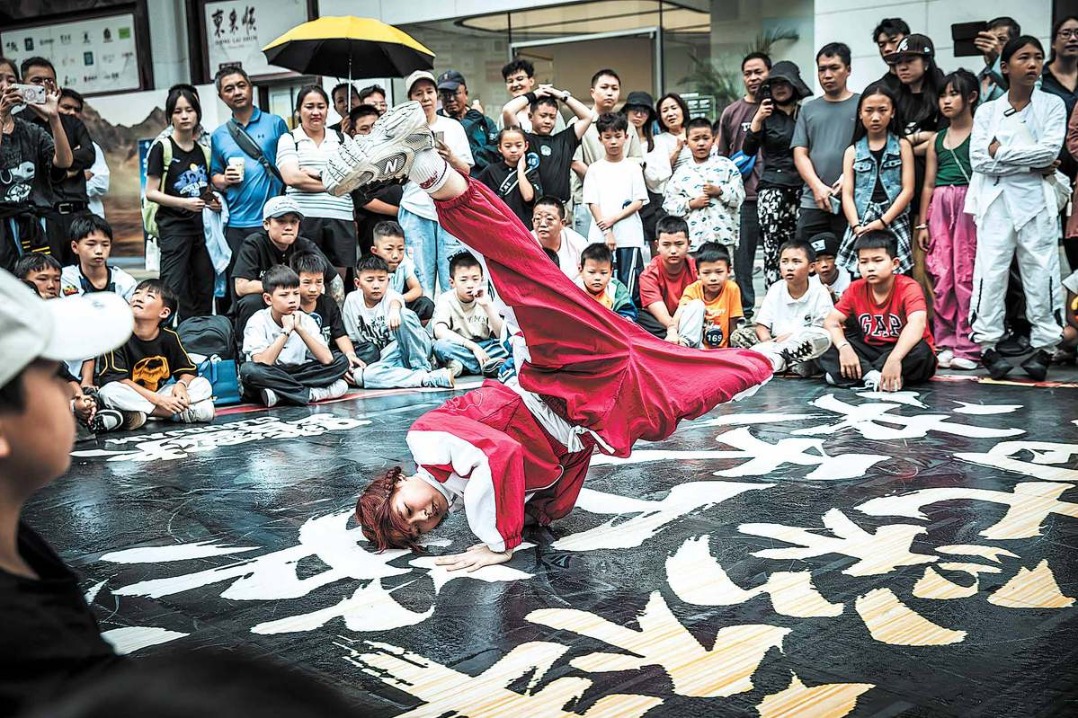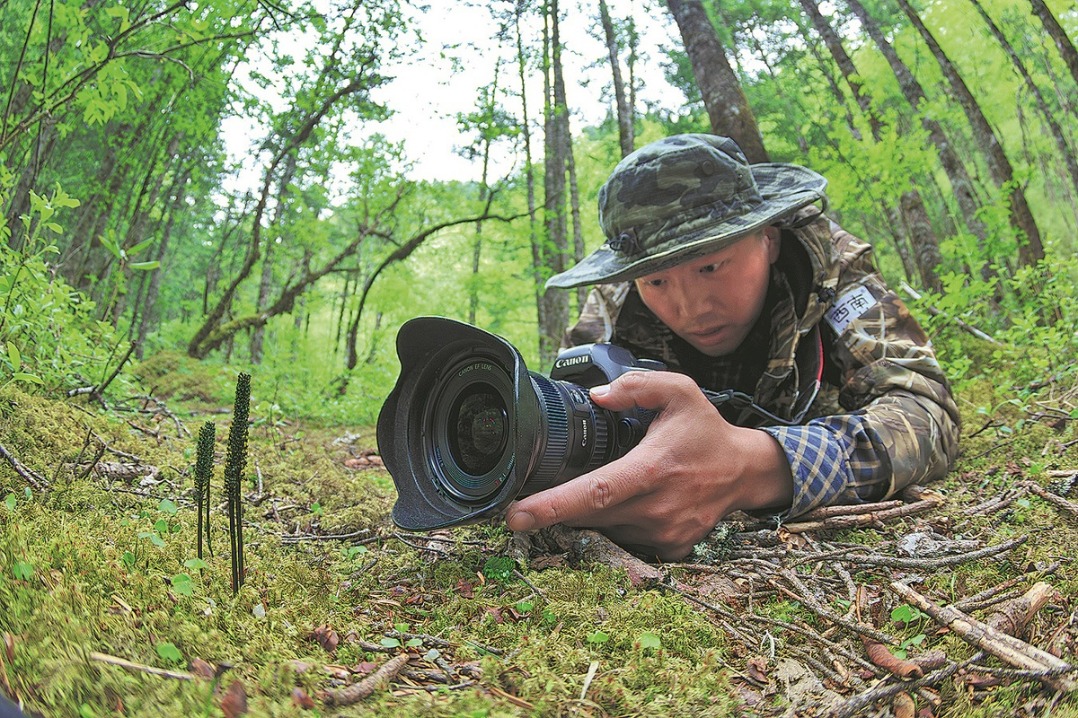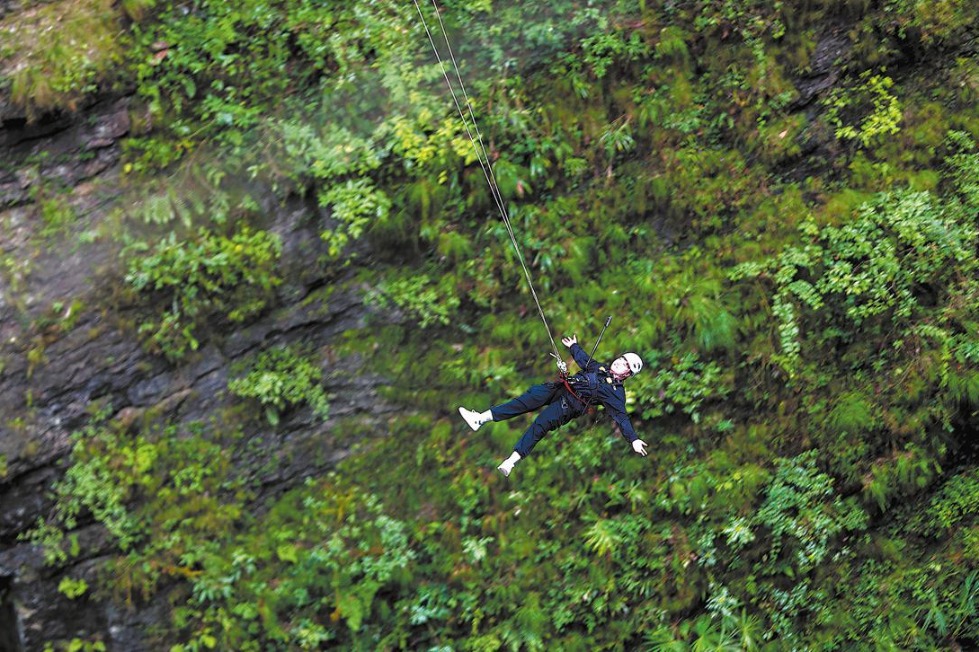Joint efforts in China light the way for children with autism

SHENYANG -- Zhao Yue will never forget the summer day in 2014 when her five-year-old son, who has autism, spoke the word "grandpa" in a clear voice. It was the first time Lun Lun (pseudonym) had ever called out to a relative.
When the boy was sent to the Little Turtle children's services center in Shenyang, the capital of Northeast China's Liaoning province, he had been entirely isolated in his own world, wouldn't talk to other people, and even refused to make eye contact with his parents.
"He couldn't even say 'mom,' and I wondered if he could recognize me at all," Zhao remembers with sadness. Teachers at the center spent three years training him to dress himself, use the toilet and eat with a spoon, repeating their lessons thousands of times before sending him to a special education school.
Now, at 16, Lun Lun is able to go to the cinema by himself. Most recently, he watched the animated blockbuster "Ne Zha 2."
And he is not the only child to have benefited from the Little Turtle center. "We would like to create a 'blue harbor' for young autistic children aged 18 months to eight years, helping children like Lun Lun transition smoothly to special education schools," said Sun Lina, the center's founder.
Over the 18 years since its establishment, the institution has expanded from a small classroom with just three teachers and five children to a center with 54 teachers capable of helping more than 300 children each year.
Teachers take the children to farms, theaters and playgrounds, allowing them to try their hand at activities such as making soybean milk, picking fruit, feeding animals and riding horses.
Sun still remembers the despair she saw in the eyes of parents of autistic children back in the 2000s, when there were few specialized institutions to help them. Having trained as an educator, she brought two other teachers to Beijing to study before they established the first educational center for children with autism in Shenyang.
She learned about the One Foundation, a non-governmental organization with programs for autism, during a training program in Beijing in 2012, and later became its first partner of its kind in northeast China.
The One Foundation provides 600 yuan (about $82.50) for each registered child per month, establishes standardized rehabilitation procedures, and trains teachers to master systematic teaching methods.
A March 2024 report on autism from Wucailu, a Beijing-based rehabilitation institution for children with autism, suggests that about 2 million children under the age of 14 in China have autism spectrum disorder (ASD), a figure that is growing by approximately 160,000 annually. By the end of 2024, the One Foundation had collaborated with more than 600 social organizations across 31 provinces, municipalities and autonomous regions on the Chinese mainland, supporting over 825,700 people with autism.
In recent years, Chinese authorities have also been working to assist children with autism. According to a circular published on the Ministry of Education's website last April, China would build a batch of pilot zones across the country with the aim of reforming the special needs education sector. The reform expanded special needs education service to cover more students, with a focus on building special schools for autistic children.
In Shenyang, for example, each child under four years of age with ASD is entitled to a rehabilitation subsidy of 24,000 yuan a year, and those between four and 10 are entitled to 18,000 yuan a year.
Additionally, the Huanggu District Women's Federation in Shenyang has launched a workshop to help mothers of autistic children increase their incomes by making hairpins.
Volunteers are also joining these efforts. Liu Zetong is a 21-year-old student at Zhengzhou University in Central China's Henan province. Since the second half of 2023, he has maintained regular volunteer work with the local autism running group most Saturday mornings. For Liu, volunteering involves running and communicating with people with autism.
His work with the group is a public welfare activity organized by the Zhengzhou Miaoyutian mental disability service center, a partner of the One Foundation.
Running activities usually last just under two hours. Participants are mainly teenagers with autism, along with their parents and volunteers. As a volunteer, Liu's primary responsibility is accompanying these teenagers as they complete their exercise. "Generally speaking, people with autism are in slightly worse physical condition than others, so this activity is beneficial to their health," he said.
After a year and a half of volunteering, he has witnessed positive changes in these participants through repeated activity participation. He remembers one child he accompanied when he started volunteering: "He was overweight and walked nearly the entire route during the first session. But when I attended the activity last October, he was able to run on his own."
Liu has also observed that many children with autism have made positive strides in their social interactions. He is able to communicate with the participants, and gradually builds trust with them. "Some children who refused to talk to me at first can now say, 'Hello.' One boy can even deliver milk to earn money, and he runs marathons. I think he's pretty amazing!" Liu said.
Ren Shaopeng, who leads One Foundation autism projects, said that weaving a net of support for families affected by autism is a task for all of society, including parents, communities and organizations.
Zhao Yue, now 44, has become a volunteer teacher for the Shenyang Disabled Persons' Federation, leading children with autism to exercise to dynamic music.
"When I was in trouble, others lent me a hand," she told Xinhua. "Now, I would like to pass on that kindness to more people in need."




















